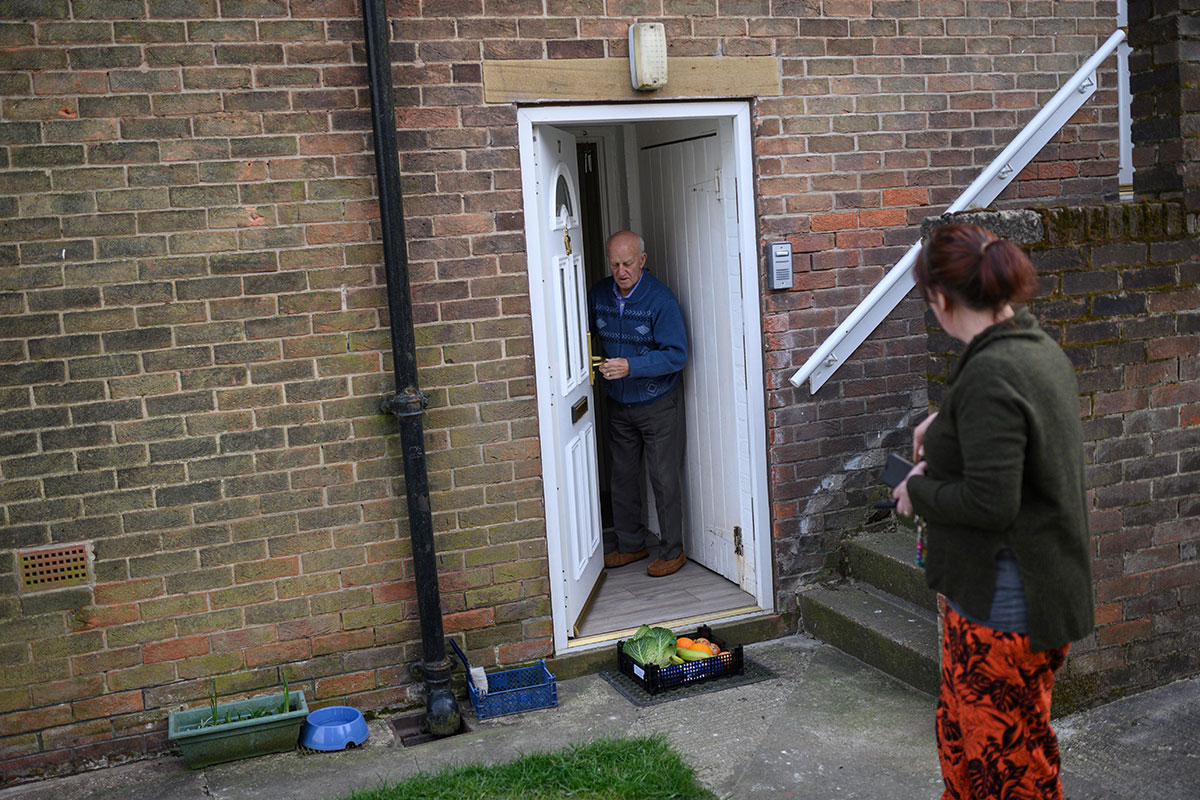You are viewing 1 of your 1 free articles

Craig Taylor is director of housing services at the Longhurst Group
Supporting tenants is the key to sustaining tenancies
Providers’ sole focus can’t just be making sure customers can pay their first four weeks of rent, says Longhurst Group’s Craig Taylor
The COVID-19 pandemic has been the most imperfect of perfect storms, creating a wave of unemployment, increased financial hardship and additional pressures on mental health.
It has exacerbated existing problems more than anyone could have imagined and increased the burden on those families who were previously only just managing to survive on the breadline.
Tenancy sustainment is a piece of work that we, and housing associations in general, have been championing for a number of years – well before the onset of COVID-19.
There has been a recognition of its vital importance going back to the introduction of austerity measures, when there was a scything cut to public spending, leading to the decimation of services that were vital to those customers who didn’t quite fit in the category of supported housing.
We’ve since seen a growing number of customers suffering with mental health issues such as depression and anxiety, worrying how they’re going to pay their rent.
We’ve also seen a definite correlation between customers not being supported the way they need to be right from the outset of their tenancy, and them then not engaging with us further down the line.
So our sole focus can’t be on making sure customers can pay their first four weeks of rent upfront at sign-up; it’s also about identifying and highlighting other issues they might need support with and that might otherwise be a barrier to them successfully sustaining their tenancy.
There also needs to be a recognition that we have a customer base that’s getting older.
Tenancy sustainment isn’t just about getting new customers signed up and making sure there are appropriate support mechanisms in place. We also need to look after our existing customers who, like any of us, can experience a change in circumstances at any time, taking what had been a successful tenancy and their ability to manage it in the wrong direction.
As with all housing associations, we want all our customers to feel safe, secure and comfortable in the knowledge they can turn to us in times of crisis.
I’m proud to say that we have a range of support functions in place, such as our money advice team and our employment, skills and training service, but we knew we needed a mechanism to bring it all together.
That’s why we’ve created three new tenancy sustainment officer (TSO) roles.
The TSO role was written into our housing strategy some 18 months to two years ago, but there is no doubt the pandemic has sped up its introduction.
TSOs will be the glue that bring together all our existing support provisions as well as those offered by external partners.
We’re currently trialling it in three different locations across our operational areas, so that we can see how we need to develop the service more effectively in the months and years ahead.
The officers themselves will be working across the group to provide a time-limited, holistic tenancy support service to general needs customers with support needs or those that require that intensive housing management input. The support they provide is focused on being preventative, aiming to avoid or reduce the risk of tenancy-related issues.
For us, it was about answering the existential question of why we’re here as a housing association. Put simply, we’re here to support our customers, some of whom are among the most vulnerable in society.
It’s been proven that if you have a roof over your head and you feel safe and secure, it can be the vehicle to greater things in life.
From my perspective, if a customer is evicted because they haven’t been offered the help or support they need, either externally through partnership work or from ourselves, then we’ve failed them.
There’s absolutely no reason why, as housing providers, we can’t step up and take a lead in this. I really do feel it’s our role to do that and that we’ve a duty to our customers to make sure they can live their best lives.
I appreciate this isn’t an overnight thing – our approach over several years has primarily been about tenancy sustainment.
Right through to the income team collecting rent and arrears, everyone has the attitude that we’re here to help and support, not here to evict. A lot of that is about the culture of the organisation.
It’s something that housing associations should really look to foster. If you’ve got the right people in place who really believe in that ethos and genuinely want to help and support customers, it goes a long, long way towards successful tenancy sustainment.
Craig Taylor, director of housing services, Longhurst Group
Sign up for our tenancy management newsletter
Already have an account? Click here to manage your newsletters









